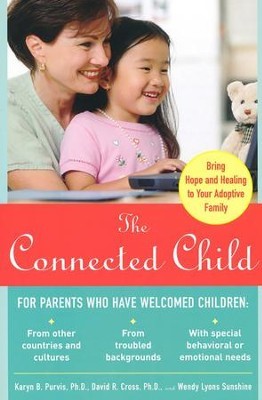Empowered to Connect
- jessica
- Apr 17, 2019
- 3 min read
The Empowered to Connect (ETC) simulcast, hosted in various locations in the Huntsville area every year in April, consists of two days packed with techniques, research, and success stories from Trust Based Relational Intervention (TBRI).
The conference begins with an in-depth look of how trauma affects children’s brains. TBRI focuses on supporting a children to be able to access their “upstairs” brain, or the thinking part of their brain. There are many times that children in foster care can only access their “downstairs” brain, or the part of the brain that makes them fight, flight, or freeze. When operating from the downstairs brain, children’s erratic behavior may look like willful disobedience when it is actually survival behaviors.

Because trauma affects not only the brain but also the biology, beliefs, and body of children, it subsequently impacts the behavior. TBRI address the complexity of behavior through Connecting, Empowering, and Correcting principles. These principles and strategies work together to impact the whole child. The ETC simulcast spends a full two days focusing on these principles and the three pillars of trauma-informed care: felt safety, connection, and self-regulation.

Connecting principles help caregivers meet attachment and regulation needs in children. Because of trauma, children in foster care are often dysregulated and need to “borrow our bodies and brains” (as Amanda Purvis said) to help them stay regulated. A child who is connected and has a secure attachment to their caregiver feels safe to come to that caregiver when feeling out of control.Parents connect with their children using mindfulness strategies and empowering strategies.
Empowering principles use ecological strategies and physiological strategies to create felt safety. Adding predictability, routines, and rituals to daily life help children know what to expect and helps to disarm fear. Managing children’s sleep, hydration, blood sugar, and activity level gives their brains the time and input needed to heal. Empowering principles encourage parents to address the sensory needs of a child, sometimes using an Occupational Therapist to help.

The simulcast ended on the topic that most parents put as one of their biggest concerns – correcting principles. TBRI focuses on connected discipline, as opposed to the distancing discipline strategies taught by traditional parenting methods. The goal of any corrective action a parent takes with a child who has experienced trauma is to deepen the connection between caregiver and child. This involves using strategies such as “time-in” instead of “time out” and focusing on the child’s preciousness instead of focusing on the failure. TBRI also relies heavily on proactive teaching strategies and practicing when the child is calm and feels safe. Parents use scripts such as “use your words” or “gentle and kind” to prompt the child to choose a healthy behavior, and practicing helps create muscle memory and a more automatic response in the future. There is also a responsive strategy called the “IDEAL” response that is immediate, direct, efficient, action-based, and leveled at the behavior and not the child.

The Empowered to Connect simulcast acts an excellent introduction or refresher to Trust Based Relational Intervention, and if you missed it this year, don’t worry! AGAPE will be partnering with local churches and agencies to host it again next year.
Until then, check out child.tcu.edu for more information on TBRI, or read The Connected Child and The Whole Brain Child to get more in-depth information on how to parent children from hard places.








Comments